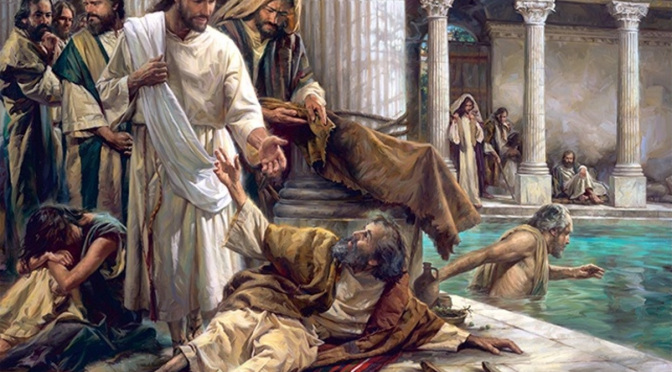
Some General Conference sessions contain principles and doctrines that cause substantial spiritual understanding. These are the talks that require extra study and humble prayer to make us better people, ready to receive the Lord. This particular session, in April 1986, focuses on welfare. Sometimes, we look at welfare as strictly a temporal topic, but these talks teach again and again that welfare sits at the very center of our religion’s spiritual principles and doctrines.
James E. Faust—The Responsibility for Welfare Rests with Me and My Family
“You may ask, ‘How can I discern which of the prophetic utterances of this conference have a particular message for me?’ My answer is, you can know. You can know by the whisperings of the Holy Spirit if you righteously and earnestly seek to know. Your own inspiration will be an unerring vibration through the companionship of the Holy Ghost.”
Isn’t this what we are still trying to figure out today? So, what is the spiritual message we should be receiving? “He has promised that they who are wise and ‘have taken the Holy Spirit for their guide’ will have the earth given unto them. (D&C 45:57–58.)
Glenn L. Pace—Principles and Programs
Elder Pace quotes President Harold B. Lee, who says,
“Nobody changes the principles and doctrines of the Church except the Lord by revelation. But methods change as the inspired direction comes to those who preside at a given time. … You may be sure that your brethren who preside are praying most earnestly, and we do not move until we have the assurance, so far as lies within our power, that what we do has the seal of divine approval.” (Ensign, Jan. 1971)
Today, we still have people thinking if their voices are loud enough, they can change church doctrine, but there is an order to how revelation is received. The prophet reveals revelation for the entire church according to what is revealed by Jesus Christ, who is at the head of this church. But a father and a mother receive revelation for their family. The spirit will dictate to a family what the prophet says to the church membership taking into consideration the immediate needs of that family. Parents do their best to align themselves and their children with the principles and doctrines of the gospel of Jesus Christ.
Russell M. Nelson—In the Lord’s Way
“To care fully for the poor, we must help the poor to change. As they are taught and abide doctrines of Deity, spiritual strength will come that enlightens the mind and liberates the soul from the yoke of bondage. When people of the earth accept the gospel of Christ, their attitudes change. Their understanding and capabilities increase.”
Elder Nelson reminded us that from the beginning, we have had the commandment to help the poor and needy. It is mentioned in all books of scripture. The commandment has been given and we are obligated, by covenant. God has a purpose in mind. When we help others, we help ourselves. In order to help the poor and needy, we must learn to be self-reliant first. When temporal needs are met, everyone is more likely to recognize spiritual blessings.
Robert D. Hales—Welfare Principles to Guide Our Lives
“The strength of the Church and the Lord’s real storehouse is in the homes and hearts of his people.”
Again, the idea of self-reliance and strengthening the home invites us to check up on our neighbor to provide any needed assistance. Certainly, we want to help with temporal needs unmet, but more importantly, as Elder Hales quotes Pres. J. Reuben Clark, our service is “to provide salvation to their souls.”
L. Tom Perry—The Law of the Fast
“Compliance always brings forth additional blessings.” Quoting Melvin J. Ballard, he said “It’s not possible to give a crust to the Lord and not receive a loaf in return. If members doubled their fast offering contributions, the spirituality in the church would double.”
By helping the poor and needy we help ourselves. By exemplifying and living the principles and doctrines of the gospel we save one another.
I particularly noticed how it was brought up that the scriptures teach the importance of helping the poor and needy (which we all are at various times and seasons) and how past prophets and apostles were quoted, teaching this basic doctrine of our gospel. We have always been taught this truth and how it relates to our salvation.